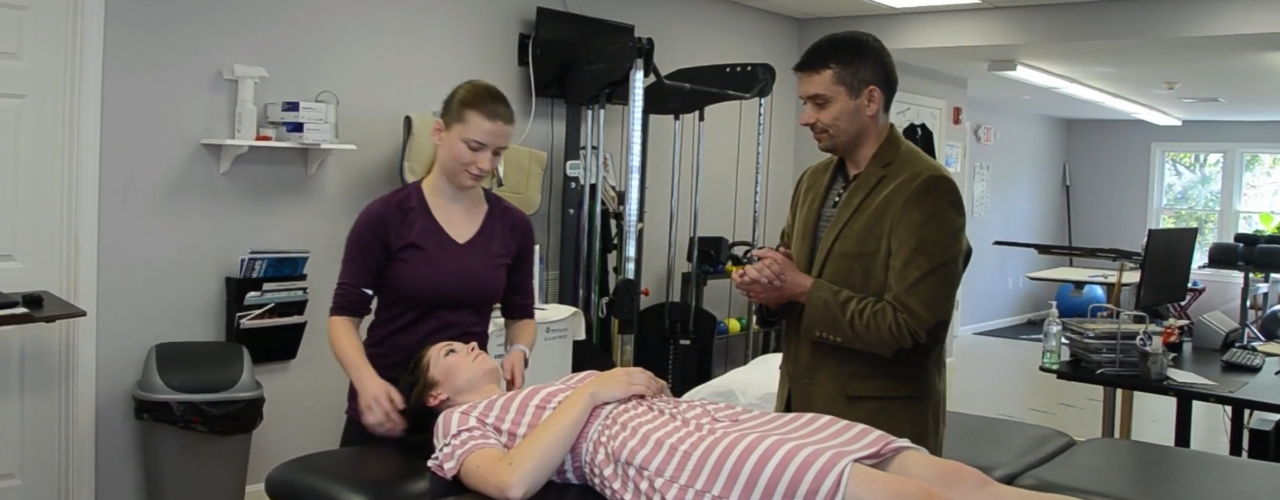This two-day course is comprised of 80% practical and 20% didactic training. The primary focus will be on the development of the psychomotor skills needed to safely and effectively deliver high-velocity, low-amplitude thrust (HVLAT) manipulation to the spinal column, more commonly known as spinal manipulation. Also included will be a brief background of HVLAT, guidelines that should direct safe practice of HVLAT, and a review of the evidence regarding HVLAT for spinal disorders.
HVLAT: Spine is the first step of a four-course series ending with practical and written certification exams. Applicants who successfully pass the certification process will be able to use the designation Cert. HVLAT (Certified in High-Velocity, Low-Amplitude Thrust) as part of their clinical education background.
All IMMT HVLAT courses have been approved for 15 contact hours by PT state boards where the courses are held, as well as the Board of Certification (BOC) for athletic trainers.
Course Objectives
At the completion of this course, the participants will be able to:
- Define high-velocity, low-amplitude thrust (HVLAT).
- List three of the potential mechanisms by which HVLAT improves spinal pain.
- List two kinematic/kinetic research findings for HVLAT applied to each of the three primary regions (cervical, thoracic, lumbosacral) of the vertebral column.
- Identify two physiological and accessory levers used in HVLAT techniques for each of the three primary regions (cervical, thoracic, lumbosacral) of the spine.
- Describe the manipulative barrier/wall that is vital in performing safe, effective spinal manipulation.
- Identify the appropriate anatomical landmarks for targeting vertebral segments with HVLAT.
- List two examination findings that justify the use of spinal manipulation for neuromusculoskeletal conditions.
- Perform, given a patient case scenario, one HVLAT procedure to the spine that produces multiple, localized cavitations (“pops”).
- Justify not performing spinal manipulation treatment due to contraindications, given a patient case scenario.
- Explain the association between cervical spine manipulation and cervical artery dissection using two peer-reviewed sources.
- Discuss the efficacy of HVLAT for each of the three primary regions (cervical, thoracic, lumbosacral) of the spine using two peer-reviewed sources.
This course has been approved for 15 contact hours by all state boards where courses are held.
Course Schedule
HVLAT: Spine | Day 1 (8 hours)
7:45 am Sign-in
8:00 am High-Velocity, Low-Amplitude Thrust (HVLAT): Definition, Mechanisms, Kinetics/Kinematics, Technique
9:00 am Cervical (C1-T1) Rotatory HVLAT – Hand-Hold
10:00 am Break
10:15 am Supine Cervicothoracic (C7-T3) AP HVLAT
11:00 am Cervical (C1-T1) Rotatory HVLAT – Chest-Hold
12:00 pm Lunch
1:00 pm The Audible Pop, When/Where to Manipulate
1:45 pm Prone Cervicothoracic Junction (C7-T3) HVLAT
2:45 pm Break
3:00 pm Sidelying Lumbosacral (T12-S1) Rotatory HVLAT
4:15 pm Supine Thoracic (T3-T6) AP HVLAT
5:00 pm Conclusion of Day 1
HVLAT: Spine | Day 2 (8 hours)
7:45 am Sign-in
8:00 am Safe Practice of High-Velocity, Low-Amplitude Thrust
9:15 am Supine Mid to Lower Thoracic (T6-T11) AP with Flexion HVLAT
10:00 am Break
10:15 am Occipito-atlantal (C0-C1) Rotatory HVLAT
11:15 am Supine Upper Rib 1-6 AP and Lower Rib 7-12 AP with Flexion HVLAT
12:00 pm Lunch
1:00 pm Evidence for High-Velocity, Low-Amplitude Thrust for Spinal Disorders
1:45 pm Sidelying SIJ Rotatory HVLAT
3:00 pm Break
3:15 pm Supine Thoracolumbar Junction (T11-L3) AP “Drop” with Flexion HVLAT
4:00 pm Prone Mid-Thoracic Vertebral (T4-T9) and Rib (4-9) PA HVLAT
5:00 pm Issue Course Certificates, Conclusion of Day 2





